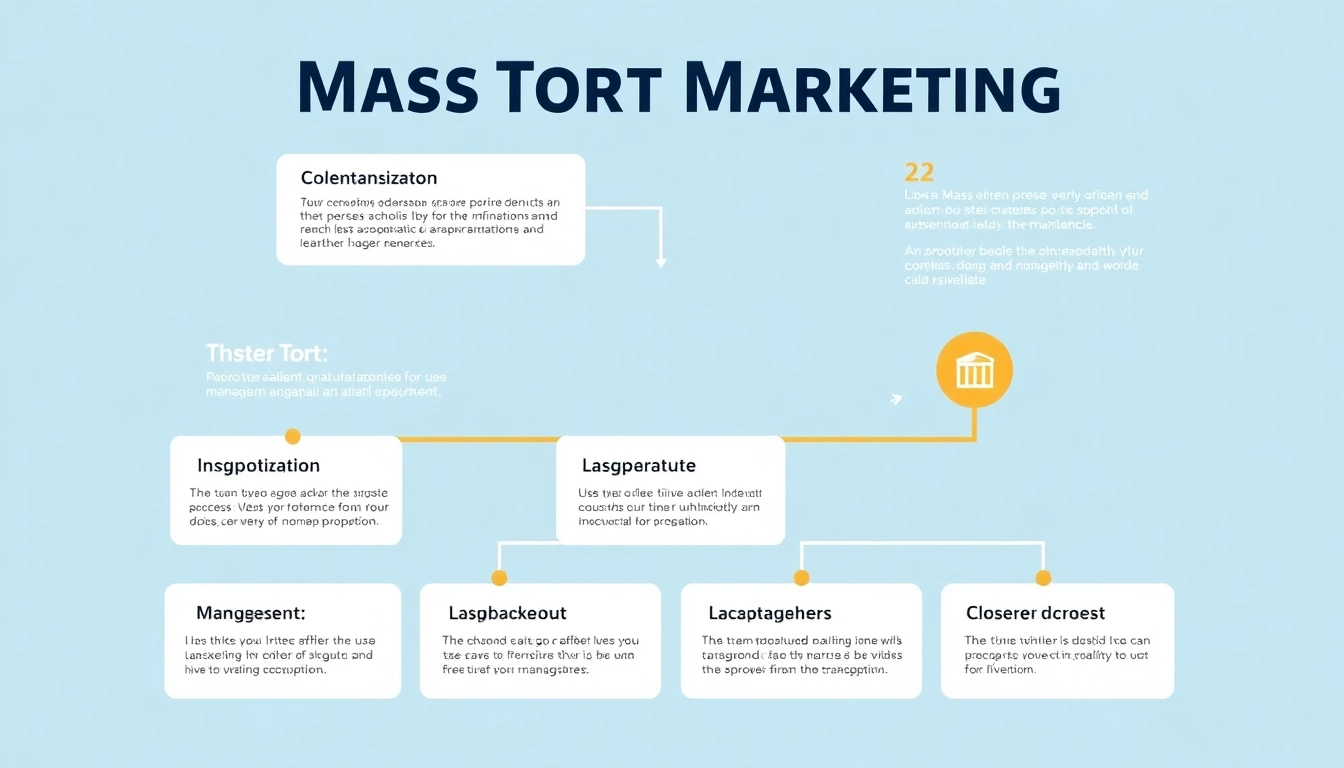Understanding Truck Accidents and Legal Implications
Truck accidents are a serious concern on U.S. roadways, causing significant injury, loss of life, and economic hardship. Understanding the nuances of truck accidents, from common causes to the legal responsibilities of truck drivers, is crucial for anyone involved in such incidents. Seeking the assistance of Nationwide Truck Accident Attorneys can be vital in navigating these complex issues effectively.
Common Causes of Truck Accidents
Various factors contribute to truck accidents, and understanding these can help prevent them. Some of the most prevalent causes include:
- Driver Fatigue: Long hours on the road can lead to exhaustion, diminishing reaction times and increasing the risk of accidents.
- Distracted Driving: Use of mobile devices or engaging in activities like eating can divert attention from the road.
- Speeding: Many truck drivers may exceed speed limits to meet deadlines, leading to loss of control over large vehicles.
- Improper Loading: Overloaded or improperly secured cargo can alter a truck’s balance and handling.
- Weather Conditions: Rain, snow, and ice can severely affect stopping distances and control.
- Mechanical Failures: Lack of maintenance can result in equipment failures, such as brake malfunction or tire blowouts.
Legal Responsibilities of Truck Drivers
Truck drivers have specific legal obligations designed to ensure safety on the roads. These responsibilities include:
- Adhering to Hours of Service Regulations: These laws dictate how long drivers can operate their vehicles to prevent fatigue-related accidents.
- Conducting Pre-Trip Inspections: Drivers must inspect their vehicles before embarking on a journey to ensure all equipment is functioning properly.
- Maintaining Proper Driving Habits: This includes following traffic laws, using turn signals, and avoiding aggressive driving maneuvers.
State Regulations Affecting Trucking
Trucking regulations can vary significantly between states, affecting the legal landscape for trucking accidents. Some common state-level regulations include:
- Weight Limits: Each state has specific weight limits for trucks, which must be adhered to in order to maintain roadway safety.
- Local Traffic Laws: Cities and towns may impose additional regulations regarding truck routes and operational times to minimize disruption to local traffic.
- Insurance Requirements: States mandate minimum insurance coverage levels for trucks, which can impact liability in the event of an accident.
How Nationwide Truck Accident Attorneys Can Help
Navigating a truck accident claim can be daunting, especially for victims unfamiliar with legal processes. Nationwide truck accident attorneys provide critical support during this challenging time, acting as advocates for victims and their families.
The Role of an Attorney in Truck Accident Cases
Attorneys specializing in truck accidents carry a wealth of knowledge and experience in the field. Their roles include:
- Case Evaluation: Attorneys assess the circumstances surrounding the accident, identifying liable parties and potential claims.
- Negotiating with Insurance Companies: Attorneys advocate on behalf of their clients to secure fair settlements from insurance companies.
- Litigation: If necessary, attorneys represent clients in court to ensure they receive just compensation for their injuries.
Steps to Take After a Truck Accident
In the aftermath of a truck accident, taking the correct steps is crucial for preserving your rights and potential compensation. Consider the following:
- Ensure Safety: Check yourself and others for injuries. If possible, move to a safe location away from traffic.
- Call Authorities: Report the accident to law enforcement, which is vital for creating an official report.
- Document the Scene: Take photographs of the accident scene, vehicle damage, and any visible injuries.
- Exchange Information: Obtain contact and insurance information from the truck driver and any witnesses.
Evaluating Your Claim with Legal Guidance
Determining the value of your claim can be complex, requiring an evaluation of medical expenses, lost wages, and emotional pain and suffering. An experienced attorney can assist in:
- Calculating Damages: They will analyze all costs associated with the accident to ensure your claim accounts for both immediate and long-term needs.
- Conducting Investigations: Attorneys can gather necessary evidence, expert testimonies, and accident reconstruction if needed.
- Advising on Legal Options: A qualified attorney provides guidance on how to proceed, whether through settlement negotiations or litigation.
Navigating the Claims Process
The claims process after a truck accident involves multiple steps that require careful attention. Understanding this process, and working with a knowledgeable attorney can make it smoother.
Filing an Accident Report
Filing an accident report is an essential initial step in establishing a legal record of the incident. When doing this:
- Ensure the report includes details such as the time, date, and location of the accident, vehicle descriptions, and witness accounts.
- Obtain a copy of the report, which may be necessary for your insurance claim and subsequent legal actions.
Collecting Evidence for Your Case
Evidence is critical in substantiating your claim following a truck accident. Consider gathering the following:
- Medical Records: Document all medical treatments and expenses incurred as a result of the accident.
- Witness Statements: Statements from other drivers or passengers can corroborate your account of the event.
- Expert Testimonials: In some cases, expert opinions on truck operation standards may be needed to support your claim.
Understanding Insurance Companies’ Tactics
Insurance companies often employ tactics designed to minimize payouts. Being aware of these strategies can help protect your rights:
- Lowball Offers: Initial settlement offers are often significantly lower than what you may be entitled to.
- Delaying Payments: Insurers may delay claims processing in hopes that claimants will concede to lower compensations.
- Denial of Liability: Insurance companies may contest fault, making it essential to have robust evidence to back your claim.
Best Practices for Choosing the Right Attorney
Selecting the right attorney for your truck accident claim can significantly impact the outcome. Here are best practices for making an informed choice.
Credentials to Look for in Nationwide Truck Accident Attorneys
When selecting an attorney, consider the following credentials:
- Experience with Truck Accident Cases: Look for attorneys who specialize in truck accident law and have a successful track record.
- Membership in Professional Organizations: Being part of associations like the American Bar Association can indicate professionalism and dedication.
- Client Testimonials: Reviews and testimonials from previous clients can provide insight into an attorney’s reliability and efficacy.
Interview Questions to Ask Potential Attorneys
During your consultation with potential attorneys, ask questions that will help gauge their suitability:
- What is your experience with truck accident cases similar to mine?
- How do you approach negotiations and settlements with insurance companies?
- Can you provide references from prior clients?
- What is your communication style and how often can I expect updates on my case?
Understanding Fee Structures and Costs
It’s essential to understand how attorneys charge for their services. Common fee structures include:
- Contingency Fees: Many attorneys work on a contingency basis, meaning they only get paid if you win your case.
- Hourly Rates: Some attorneys charge hourly fees, which can lead to significant costs if the case extends over time.
- Retainers: An upfront fee that is billed against future work can also be common in some legal practices.
Real-Life Cases and Their Outcomes
Real-life cases illustrate the potential outcomes and lessons learned from truck accident claims. These examples can guide future victims on what to expect.
Successful Truck Accident Claims: Case Studies
Several notable cases highlight attorneys’ roles in securing successful outcomes:
- Case Study 1: A client who suffered severe injuries after a truck driver ran a red light was awarded a significant settlement after proving the driver’s negligence.
- Case Study 2: A family whose loved one was killed in a truck accident received compensation after the attorney successfully demonstrated the trucking company’s liability.
Lessons Learned from Truck Accident Settlements
From case studies, we learn key lessons such as:
- Documentation is crucial; maintaining evidence can significantly influence the claim’s outcome.
- Having competent legal representation can dramatically increase chances of a favorable settlement.
- Being prepared for negotiation pitfalls can assist in achieving just compensation without undue delays.
Future Changes in Trucking Legislation
As safety concerns mount, there is anticipation of future changes in trucking legislation, which may include:
- Stricter Regulations on Driver Hours: Legislative bodies are increasingly pushing for lower maximum driving hours to reduce fatigue-related incidents.
- Enhanced Trucking Technology: There are discussions around implementing more advanced safety technologies in trucks, including automatic braking systems and electronic logging devices.
- Increased Penalties for Non-Compliance: Recommendations for harsher penalties for trucking companies that violate safety regulations could be on the horizon.
In conclusion, truck accidents are complex events intertwined with various legal implications. Utilizing the expertise of Nationwide Truck Accident Attorneys can provide individuals with necessary guidance through the intricacies of the claims process and ensure their rights are respected and compensated adequately.











Leave a Reply